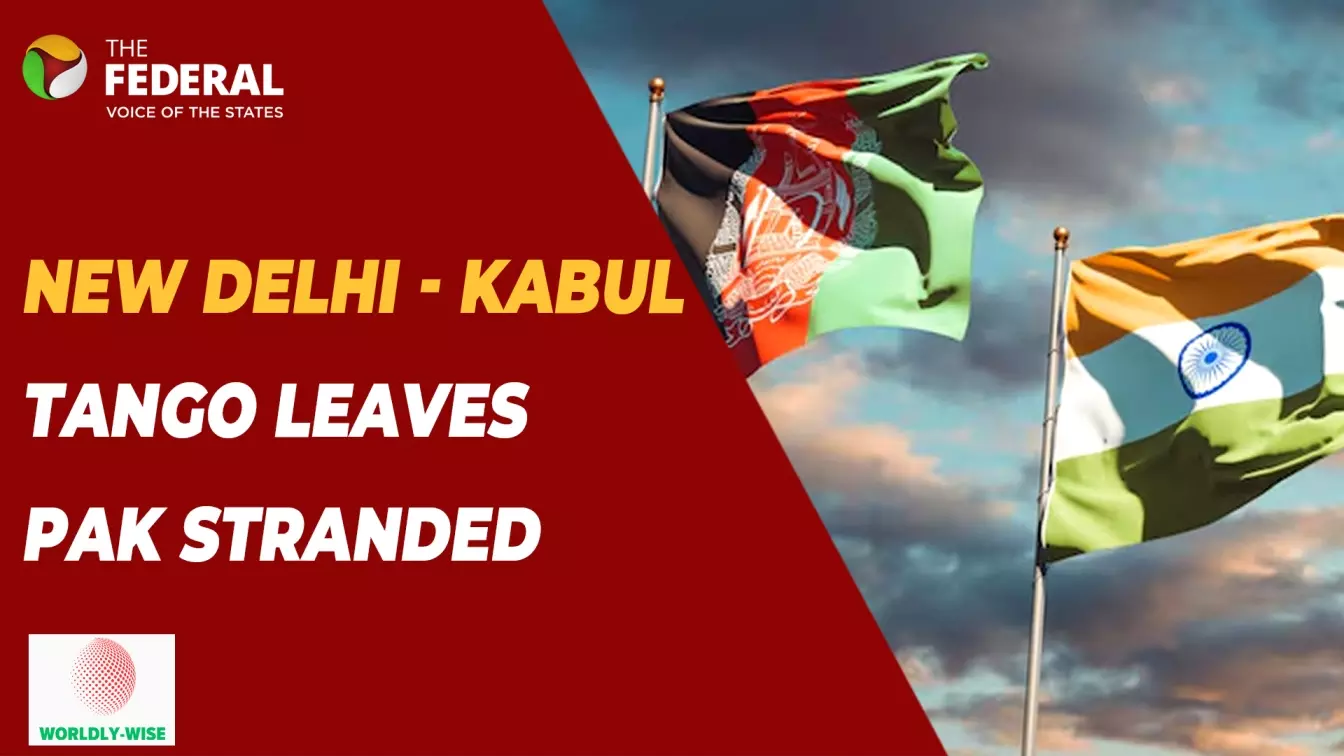
Is India moving closer to Afghan Taliban govt?
As India courts the Taliban, can New Delhi outmanoeuver China and Pakistan’s strategic axis in South Asia?

India’s growing engagement with the Taliban signals a dramatic shift in regional diplomacy aimed at countering China and Pakistan’s expanding influence. As old rivalries transform and strategic compulsions emerge, New Delhi’s outreach to Kabul could redefine South Asia’s power equation.
In a surprising turn, India and the Taliban — who were once adversaries — are exploring common ground.
Also read: Jaishankar speaks to Taliban minister, welcomes Kabul's condemnation of Pahalgam attack
Meanwhile, Pakistan, once a close ally of the Taliban, now finds its ties with the group strained, creating space for India to step in.
Changing dynamics
In 1999, India had to negotiate with the Taliban for the release of hijacked Indian Airlines passengers. Today, political compulsions are drawing India and the Taliban towards dialogue, even friendship.
Also read: Afghan women, who fled Taliban, face horror of returning home after freeze on USAID fund
“For India, engaging with Kabul has become urgent, especially after ties with Bangladesh soured following the ouster of Sheikh Hasina,” said K S Dakshina Murthy, Consulting Editor with The Federal. The new administration in Dhaka has shown hostility towards India, damaging regional equations.
Pakistan has also sought to exploit the situation, trying to build ties with Bangladesh’s interim government. China, a staunch ally of Islamabad, is backing a trilateral axis involving Pakistan and Bangladesh, adding to India’s concerns.
China-Pakistan plans
China is replicating its eastern strategy in the West, attempting a trilateral arrangement with Pakistan and Afghanistan. This leaves India with one bold option — to engage the Taliban and counterbalance the China-Pakistan axis.
“The Taliban 2.0 is not the same as 1.0,” noted Murthy. Tensions between Pakistan and the Taliban have grown, fuelled by Pakistan’s military operations and forced deportations of Afghan refugees.
Since January, India’s outreach has gained momentum, with Foreign Secretary Vikram Misri meeting Afghanistan’s acting Foreign Minister Amir Khan Muttaqi in Dubai. India has resumed visa issuance and maintained a consulate presence in Kabul.
Opportunities and challenges
“The turning point came when the Taliban condemned the Pahalgam terror attack,” Murthy said. External Affairs Minister S. Jaishankar even thanked Muttaqi for the gesture, but challenges remain.
China continues to engage both Kabul and Islamabad, keen to block India’s rise in Afghanistan. Afghanistan, like other South Asian neighbours, is likely to leverage this rivalry for its gain.
Moral dilemmas also shadow India’s strategy. The Taliban government remains deeply repressive, especially towards women, who are denied education, employment, and sports participation. “India’s engagement raises tough questions about aligning with such a regime,” Murthy added.
In the realpolitik of South Asia, however, national interest often trumps ideology. As Murthy observed, “It’s national interest that dictates policy in this emerging India-Afghan relationship.”
(The content above has been generated using a fine-tuned AI model. To ensure accuracy, quality, and editorial integrity, we employ a Human-In-The-Loop (HITL) process. While AI assists in creating the initial draft, our experienced editorial team carefully reviews, edits, and refines the content before publication. At The Federal, we combine the efficiency of AI with the expertise of human editors to deliver reliable and insightful journalism.)

